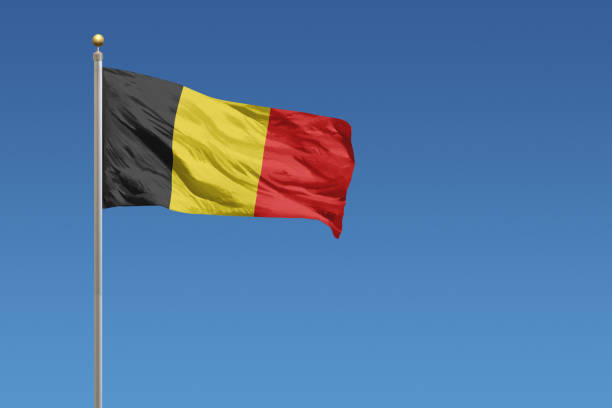
The EU Blue Card combines a work permit and a residence permit in the EU for citizens from outside Europe. Starting in 2012, this program has become an opportunity not only for highly qualified specialists to get the best place to work and choose where to live, but also for the participating countries to invite the missing professionals.
The Blue Card was created by analogy with the American Green Card. But, unlike the latter, it is focused on experienced professionals. Although, perhaps, the RAISE act that proposed by Donald Trump will change everything – and the United States will also select the lucky ones who are lucky to realize the “American Dream”, purely in terms of professional achievements.
The reason for this “generosity” on the part of Europe is the aging of the population, and therefore the lack of personnel in certain specialties. Only Ireland, Denmark, and Great Britain abandoned the project. In other countries, the conditions for obtaining a Blue Card, the prospects associated with it, and even most of the vacancies are very similar.
To become a happy owner of the Blue Card, it is enough to fulfill three conditions (in addition to being a non-EU citizen):
Education
Higher education is obligatory, the term of study is at least three years with the assignment of a specialist or master’s degree. Moreover, to be hired, your diploma must correspond to the European diploma in the specialty in question in the country you are going to.
For example, you can see the list of universities that meet the requirements of the Blue Card for Germany on the website www.bamf.de. If your educational institution is not in the database, you will have to confirm the diploma.
In some countries, in addition to higher education, a compulsory requirement is work experience in the relevant specialty, which you can document. If your specialty is in particular demand, proven work experience for at least five years can replace a higher education diploma.
Blue card for specialists
To obtain a Blue Card, it is not enough to have higher education in a demanded profession – you need to already have an employment contract with a potential job for at least a year.
Salary

Moreover, the guaranteed level of remuneration is fixed for each specific country. For example, the minimum for Germany is € 49,600 per year and at least € 38,688 for specialists who are especially in demand in the country (engineers, doctors, IT, etc.), for Finland – € 4809 per month, for the Czech Republic – € 18,300 per year, Spain – € 33908, Poland – € 1366 per month. This level changes every year.
Highly qualified specialists wishing to receive a Blue Card are assisted not only by a single country but also by the European Union as a whole, helping to find potential employers and establish communication with them. To this end, the website of the European Union contains detailed information for those who want to live and work in Europe. Here you can find the conditions for employment, a list of in-demand professions, and the minimum wage threshold, as well as visit the websites of each participating country.
There are also several portals where you can learn about the labor market and the specifics of moving to a particular country – for example, separately for Germany, the Czech Republic, Austria, the Netherlands, Finland, Spain.
In the first stages, we recommend that you engage in a passive job search: fill out an electronic application form on the website of the EU or the country where you want to move, indicating as much detailed information as possible about education, professional skills, and work experience. After publication, your data goes into the database and from that moment is available to potential employers. If you are interested, the employer will contact you, conduct an online interview or, more likely, invite you for a face-to-face interview.
Which specialists will be able to get a Blue Card?
A specific list of relevant professions is compiled by the Ministry of Labor of each country. Even though the exact specialties may vary, there is a general list of areas where highly qualified workers are always in demand on the EU labor market:
-
physics and mathematics: teachers for schools, universities, colleges;
-
IT developers, network administrators;
-
experts in the natural sciences: veterinarians, zoologists, biologists, botanists, ecologists;
-
physicians: surgeons, anesthesiologists, pharmacists, urologists, cardiologists;
-
lawyers: notaries, lawyers;
-
engineers, designers, and architects: a wide variety of industries, as well as the development of alternative energy sources.
Although when obtaining the Blue Card, knowledge of the language is not a mandatory criterion, proficiency in it (or even better – several) will be your significant advantage.
Required documents

If you are not yet resident in the European Union, you must first obtain a work visa before obtaining a Blue Card. After entering the country and before the expiration of the visa, you need to submit documents for the issuance of a Blue Card at the local migration office.
A potential Blue Card participant will need to collect and submit the following package of documents:
-
Visa application form and application for stay in the country.
-
Biography of the applicant with all contact details, as well as a certificate of no criminal record.
-
An employment contract, which must indicate the name and address of the company, the duties of a specialist, the number of wages, and other working conditions. Necessarily endorsed by both parties, and also certified by the Ministry of Labor of the country where the move is planned.
-
Higher education diploma that meets EU requirements.
-
An international passport, the validity of which is not less than the period for which the labor contract is concluded, as well as an internal passport.
-
Employment history.
-
Medical insurance.
-
A photo.
-
Receipt of payment of the fee for the examination of documents.
Term of consideration
If you have collected a complete package of documents, then you will receive a response about obtaining a Blue Card in a maximum of 12 weeks. Often, if you did everything right, the notification may come earlier: in 8-9 weeks. A positive answer is published on the official website, a negative answer is communicated to a potential employer, after which he talks about the decision to the candidate.
The Blue Card is valid for up to four years from the date of issue, provided that the employment contract is concluded for this or a longer period. If the contract is valid for less than four years, then the card is issued for the period specified in it plus three months. If during the first two years you decide to change your place of work, you will first have to coordinate your decision with the Office for Foreigners.


